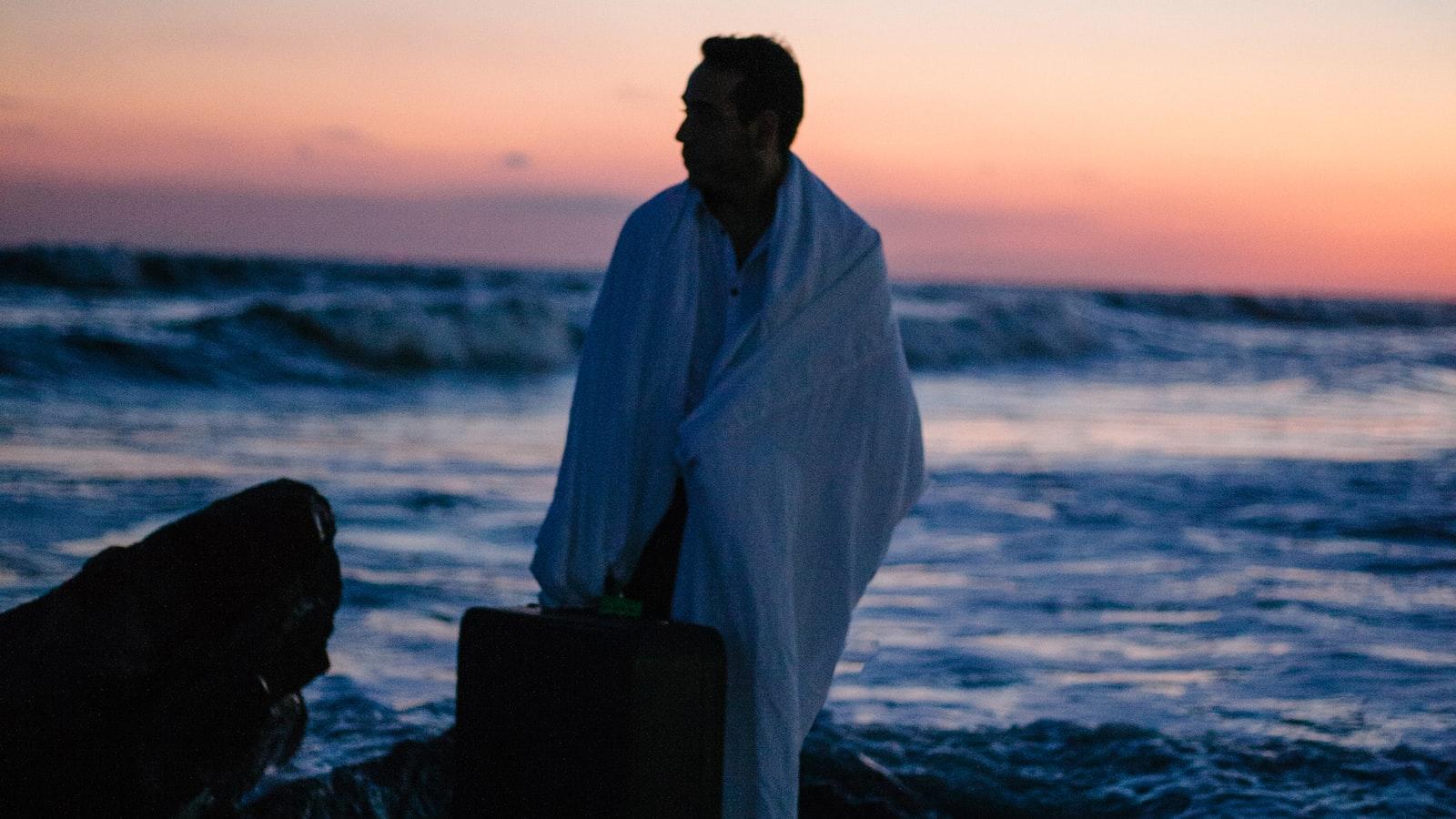Breastfeeding is a wonderful way to nurture and bond with your baby. It can also be a great source of comfort for both mom and baby alike. However, one of the questions that many new moms have is how long they can be away from their baby while breastfeeding. In this article, we will look at some factors to consider when deciding how long you can be away from your baby while breastfeeding. We will also explore some tips for pumping breast milk while you are away and how to make sure baby stays well-fed.It depends on the age of your baby. Generally speaking, the older your baby is, the longer you can be away from them while still breastfeeding. For babies under 6 months of age, it is best to limit time away from them to 4-5 hours or less. For babies 6 months and older, you may be able to be away for up to 8 hours or more if necessary.
Benefits of Breastfeeding for Baby
Breast milk is the optimal source of nutrition for babies. It is full of all the essential nutrients, vitamins and minerals that a baby needs to grow and develop healthily. Breast milk also contains antibodies that help protect infants from common childhood illnesses such as ear infections, diarrhea and respiratory infections. Breastfed babies are also less likely to become obese later in life, have fewer allergies, lower rates of Sudden Infant Death Syndrome (SIDS) and have higher IQs. Additionally, breastfeeding provides a special bonding experience that strengthens the bond between mother and baby.
Benefits of Breastfeeding for Mom
Breastfeeding can be beneficial for mothers too. Moms who breastfeed have lower risks of certain types of breast and ovarian cancers, endometrial cancer, type 2 diabetes and cardiovascular disease. Additionally, breastfeeding helps mothers recover more quickly postpartum because it causes the uterus to contract more quickly back to its pre-pregnancy state. Finally, breastfeeding can save money on formula costs as well as provide an opportunity for mothers to bond with their babies in a unique way.
Preparing for Pumping Milk Before Leaving Your Baby
It’s important to take the time to properly prepare before leaving your baby in order to ensure that he/she is well taken care of while you are away. Pumping milk while away from your baby can be a daunting task, but with the right preparation it can be accomplished easily. Here are some tips for getting ready before you head out:
Gather the Necessary Supplies
When preparing to pump milk, make sure you have all of the necessary supplies on hand. This includes breast pumps, bottles, storage bags, nipples, and cleaning supplies. Additionally, if you are traveling for an extended period of time, consider bringing a cooler bag and ice packs to keep your milk cold during transport.
Set Up a Comfortable Space
You’ll want to find a comfortable place to pump where you won’t be disturbed. Consider setting up a designated area in your temporary living space with all of the necessary supplies at arm’s reach. Having everything organized ahead of time will help make pumping more efficient and less stressful.
Create a Pumping Schedule
Pumping regularly is essential for maintaining milk supply and providing your baby with enough nutrition while you’re away from them. Create a schedule that works best for your needs and stick to it as much as possible. This will help ensure that you’re getting adequate rest during this busy period of time.
Stay Hydrated
It’s important to stay well hydrated when pumping milk, as dehydration can reduce your supply. Keep plenty of water or other fluids on hand at all times so that you can stay hydrated throughout the day. Drinking fluids between pumping sessions can also help boost your supply and make pumping more comfortable overall.
By taking these steps ahead of time, pumping while away from your baby will be much less stressful and more manageable overall!
How to Store Pumped Milk During Absence
When breastfeeding mothers have to be away from their baby for a period of time, they may want to consider pumping and storing milk for their baby’s use. Storing pumped milk is relatively easy; however, there are guidelines that should be followed in order to ensure the milk is safe and nutritious.
When storing pumped breastmilk, the most important factor is temperature. Freshly pumped milk can be stored at room temperature for up to six hours, as long as it is placed in a clean, covered container. After six hours, the milk should be refrigerated and used within four days. When refrigerating breastmilk, it should be placed in the back of the refrigerator where temperatures are most consistent.
If mothers need to store pumped milk for longer than four days, they should consider freezing it. Breastmilk can be safely stored in a freezer for up to three months if it is placed in a heavy duty plastic bag or a special breastmilk storage container. When freezing breastmilk, it should be stored towards the back of the freezer where temperatures remain more consistent. It may also help to label each container with the date so you know how old your frozen milk is.
Finally, when thawing frozen breastmilk it should never be left out at room temperature; instead it should always be thawed under hot running water or in a pan of warm water on low heat on the stovetop. Once thawed, any unused portions must be discarded within 24 hours as bacteria can grow quickly at room temperature.
By following these simple guidelines for storing pumped breastmilk, mothers will not only ensure their baby has access to proper nutrition while they are away but also prevent any potential health risks associated with improper storage techniques.
How Long Can Breast Milk Remain Fresh?
Breast milk is a highly nutritious food source that provides all the essential nutrients to an infant. It is a natural source of antibodies and other important components for the baby’s development. As such, it is important to understand how long breast milk can remain fresh in order to ensure optimal nutrition for the child.
The answer to this question depends on several factors, including storage temperature, type of container used, and time elapsed since the milk was expressed. Generally speaking, breast milk can remain fresh at room temperature for up to eight hours, though other factors may influence this timeframe. Breast milk should be stored at refrigerator temperatures (4°C or below) or frozen (at -18°C or below) if it will not be used within this time period.
Refrigerated breast milk is safe to consume for up to five days after it has been expressed. It is important to use clean containers when refrigerating breastmilk and to ensure that any leftovers are discarded after 24 hours. Frozen breast milk can remain safe for up to six months if stored correctly in an airtight container.
When storing breastmilk, it is important that hygiene standards are maintained at all times in order to prevent contamination of the milk with bacteria and other contaminants. Containers should always be carefully cleaned between uses and all expressed milk should be labeled with the date on which it was expressed in order to track its freshness more easily.
In summary, breastmilk can remain fresh at room temperature for up to 8 hours but must be stored in the refrigerator or freezer if it won’t be used within that timeframe. Refrigerated breastmilk is safe for five days while frozen breastmilk can remain safe for up to six months if stored properly in an airtight container. Hygiene standards must also be maintained when storing and handling expressed breastmilk in order to prevent contamination with bacteria and other contaminants.

Expressing Milk While Away from Baby
Expressing milk while away from your baby can be a daunting task, but with a few simple tips and techniques, it doesn’t have to be. Here are some tips to help make expressing milk away from your baby easier:
1. Prepare ahead of time: Knowing what you need ahead of time can help make expressing milk away from your baby easier. Make sure you have all the items you need such as a cooler bag, ice packs, breast pump, bottles and nipples, and cleaning supplies.
2. Choose the right location: When expressing milk away from your baby, it’s important to choose a comfortable and private space where you won’t be disturbed. This could be a private room at work or even the back seat of your car if necessary.
3. Hydrate: Drinking plenty of fluids is important for keeping up your milk supply and helping with let-down reflex so make sure to stay hydrated while expressing milk away from baby.
4. Take breaks: If you’re feeling stressed or overwhelmed when expressing milk away from your baby, take a break for a few minutes to relax and regroup before continuing on with pumping.
5. Wear comfortable clothing: Wearing comfortable clothing that is easy to remove and put back on when expressing away from home can make the process much more pleasant for both you and your baby when you reunite later on in the day.
6. Use warm compresses: Applying warm compresses to your breasts before beginning pumping can help stimulate let-down reflex and make it easier to express more milk quickly when away from home.
7. Have patience: Expressing milk while away from home can take longer than expected so it’s important to be patient during the process so that you don’t become too frustrated or overwhelmed by the situation
Preparation
When preparing for an extended period away from your baby, it is important to account for how you will maintain your milk supply. This can be done by taking certain steps before leaving, such as pumping and storing your milk. By taking the time to pump and store extra milk before departing, you can have a reserve of breastmilk available while you are away from your baby. This can help ensure that they still receive the nourishment they need in your absence.
Pumping
In order to maintain a healthy supply of breastmilk while away from your baby, it is important to continue pumping regularly. This means that you should pump at least every 3-4 hours, or as often as you would when with the baby. This helps ensure that the body continues to produce enough milk for both the mother and the baby. Additionally, it allows for the mother to have breastmilk available if she needs to leave early or wants to bring some back home for the baby.
Freezing Milk
Another way to maintain a steady supply of breastmilk while away from the baby is by freezing it. Milk can be frozen in various containers such as ice cube trays and specially designed storage bags. This allows for easy transportation of large amounts of milk without worrying about spoilage or contamination. When freezing milk it is important to remember that it should be used within 6 months of freezing for best quality.
Stay Hydrated
Staying hydrated is also an important part of maintaining a healthy supply of breastmilk while away from your baby. Drinking plenty of water throughout the day helps keep dehydration at bay which is essential for maintaining a healthy supply. Additionally, avoiding alcohol and caffeine when possible can help boost production by keeping hormones balanced.
Seek Support
Finally, seeking out support while away from home can be beneficial in maintaining a steady supply of breastmilk. Joining support groups online or finding local resources in the area where you are staying can help provide encouragement and guidance on how best to take care of yourself and keep up production while away from home.
Storing Breast Milk
Expressing and storing breast milk is an important part of a breastfeeding routine, and it is important to be aware of best practices to ensure that the breast milk is safe for the baby. Breast milk can be stored in the refrigerator or freezer for later use. When storing expressed breast milk, it is important to use glass or hard plastic containers that are designed specifically for storing breast milk. These containers should be washed in hot soapy water before use, and should be labeled with the time and date of expressed milk. The containers should also be sealed tightly to keep out bacteria. If possible, freeze the expressed breast milk in small amounts so that when it is defrosted, it will not need to be refrozen.
Storing Breast Milk in Refrigerator
Breast milk can safely be stored in a refrigerator for up to four days as long as it is placed in the back of the refrigerator where the temperature is most consistent. It can also be stored in insulated bags or coolers with ice packs if needed.
Storing Breast Milk in Freezer
Breast milk can also be stored in a freezer for up to six months if it is properly sealed and labeled. It is best to store expressed breast milk at the back of the freezer where temperatures are most consistent and avoid storing near the door where temperatures may fluctuate when opened and closed frequently.
Thawing Frozen Breast Milk
Frozen breast milk should always be thawed by running warm water over it until thawed. Never thaw frozen breast milk by placing it on a countertop or near direct heat as this can cause bacteria growth. Thawed breast milk should always be used within 24 hours after thawing and never refrozen once thawed.
By following these guidelines for expressing and storing breast milk, mothers can ensure that their baby’s nutrition needs are being met safely and effectively.

Conclusion
Breastfeeding is a personal choice, and so is the decision of how long a mother can be away from her baby while breastfeeding. While many mothers are comfortable being away for several hours, other moms may need to be more cautious when leaving their babies for an extended period of time. It is important to monitor the baby’s feeding schedule and hunger cues when preparing to leave and when returning home. It is also important to make sure that the caregiver has all the information they need to properly care for the baby while the mother is away.
Ultimately, the decision of how long a mother can be away from her baby while breastfeeding should be based on what works best for both mother and child. As long as there are proper plans in place, it is possible for mothers to take some time away from their babies while still ensuring that their little ones are well taken care of.




